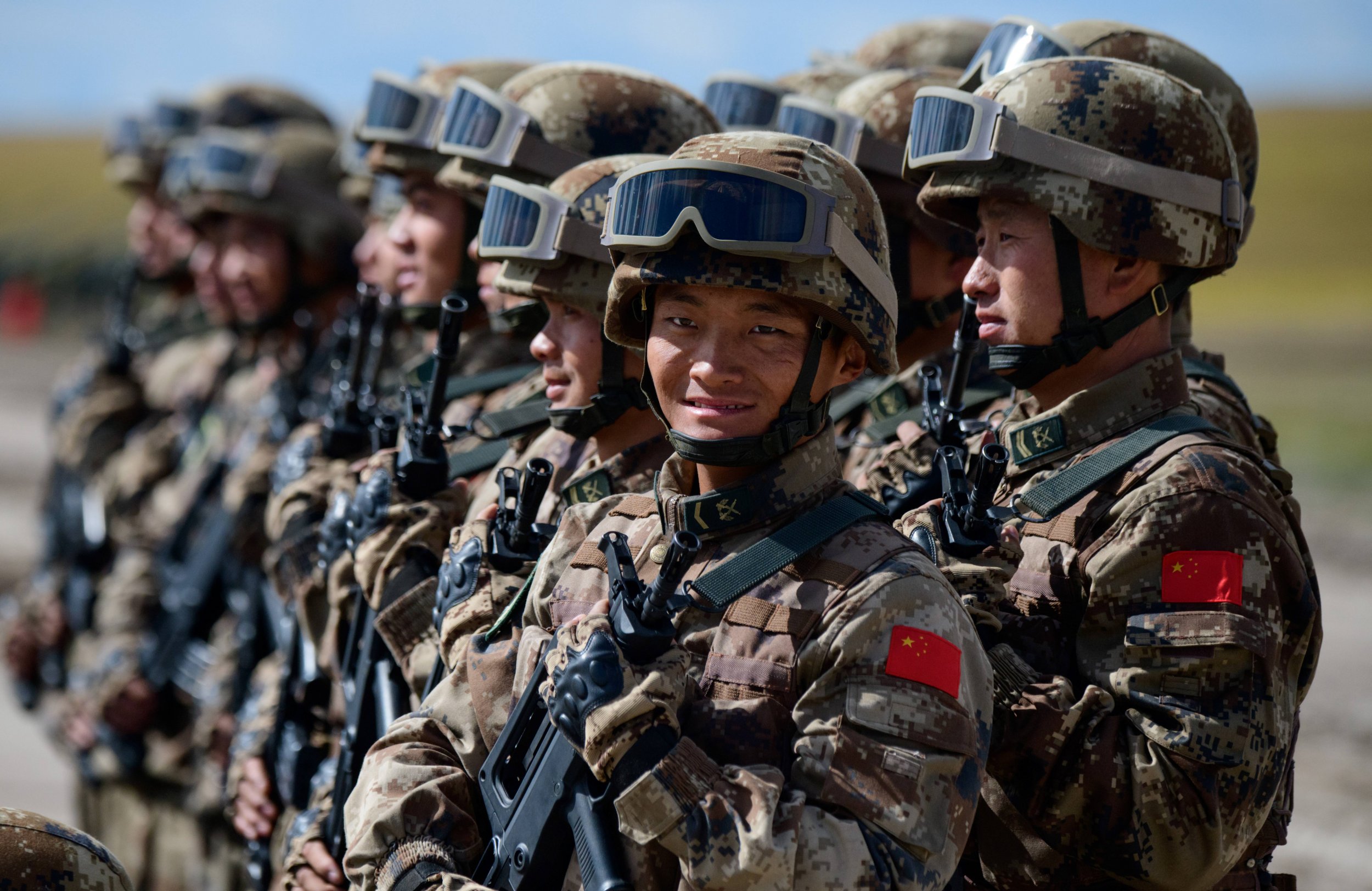
An increasingly influential China is already one of the world's most powerful countries and is contending to overtake only two countries with greater global pull, according to a new report.
On Friday, the Henry Jackson Society, a think tank based in London, published a report titled "An Audit of Geopolitical Capability," which ranked the leading 20 nations in terms of four primary categories: national "base," "structure," "instruments" and "resolve." The study placed the United States at the top of the list, the United Kingdom then closely followed by China, while Russia lagged way back in tenth.
Claiming the report was "the world's most comprehensive ranking of national capability," its chief analyst, James Rogers, argued that the U.K.'s global status had been little affected by the Brexit crisis that has afflicted its currency and polarized its government. The report argued that the U.K. still managed to "project and extend itself … around the world."
Still, Rogers noted that "this position may now be under serious threat from China," whose "economic growth and naval investment could see it overtake the U.K. as a global power" as early as 2020.
Its new rankings show:
— Henry Jackson Society (@HJS_Org) January 4, 2019
1.🇺🇸 USA
2.🇬🇧 UK
3.🇨🇳 China
4.🇫🇷 France
5.🇩🇪 Germany
6.🇯🇵 Japan
7.🇨🇦 Canada
8.🇦🇺 Australia
9.🇮🇳 India
10.🇷🇺Russia
11.🇰🇷South Korea
12.🇮🇹Italy
13.🇧🇷Brazil
14.🇿🇦South Africa
15.🇦🇷Argentina
16.🇮🇩Indonesia
17.🇹🇷Turkey
18.🇲🇽Mexico
19.🇸🇦Saudi Arabia
20.🇳🇬Nigeria
Few international rankings have placed the U.K. so high, especially in light of recent domestic crises, but the report was aligned with a number of others in concluding that "China's rapidly expanding geopolitical capacity poses a serious challenge to the West." The Henry Jackson Society's previous audit, released in September 2017, also ranked the U.K. in second place, but at that time, France came in third place and China in fourth.
In the latest edition, compelling factors cited for China's promotion included the fact that the nation "added approximately 65,000 tonnes [71,650 tons] of large new warships to its fleet since 2016" as well as its "technological prowess."
Last summer, U.S. World News & Report issued its own annual power ranking that joined a near-universal consensus in placing the U.S. at the summit, and placed Russia in front of China. The U.K. fell from fourth to fifth place between 2017 and 2018, according to that list. A report called "The Eight Great Powers of 2017" featured that year by The Hudson Institute did not include the U.K., but rather the U.S., a tie between China and Japan, Russia, Germany, India, Iran and Israel.
Numerous studies, including those issued by affiliated of the NATO military alliance that includes the U.S., the U.K., France, Germany and other major Western powers, have found the center of global influence moving from the West to the East. One such report, the Asia Power Index conducted by the Australia-based Lowy Institute, still found the U.S. to be the foremost power in the region, followed by China, while Russia took fifth and the U.K. was not featured.

One partnership that has helped shift the weight of the world's power has been that between Beijing and Moscow, both of whom view Washington as pursuing expansionist policies internationally. The U.S. government has cited the rise of Russia and China as a top threat in such documents as the National Security Strategy, National Defense Strategy and National Defense Authorization Act.
U.S. Army Secretary Mark Esper told the Aspen Security Conference in July 2018 that Russia was the Pentagon's biggest worry "over the five to 15-year period," while China was "the long-term threat" due to "the economic power of that country, the size, its ambitions." FBI Director Christopher Wray told the Senate Homeland Security Committee in October that "China in many ways represents the broadest, most complicated, most long-term counterintelligence threat we face," ahead of Russia, which was "fighting to stay relevant after the fall of the Soviet Union."
As Russia and China's interests align if simply out of convenience, the Pentagon has grown increasingly wary of its own shortcomings. The federal United States Peace Institution found in its November report that despite its military superiority, the U.S. "might struggle to win, or perhaps lose, a war against China or Russia" and "is particularly at risk of being overwhelmed should its military be forced to fight on two or more fronts simultaneously."
Uncommon Knowledge
Newsweek is committed to challenging conventional wisdom and finding connections in the search for common ground.
Newsweek is committed to challenging conventional wisdom and finding connections in the search for common ground.
About the writer
Based in his hometown of Staten Island, New York City, Tom O'Connor is an award-winning Senior Writer of Foreign Policy ... Read more





